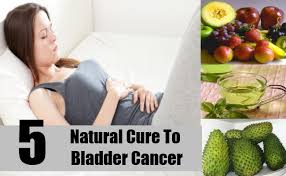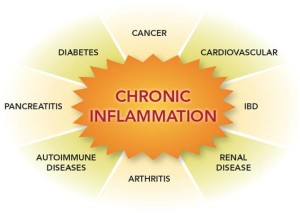Preventive Elements of Cancer Infections
Preventive Elements of Cancer Infections: Important Deterrence Factors

Cancer prevention the better option for health in all dimension. We can do it because it is not impossible.
Good health is the most precious thing one can have in life. It is for much better than all the other wealth and valuable assets we are struggling to have. No one can quantify good health into monetary value and so good health is a priceless treasure. We all need to have it but the kind of life we are living today is full of so many contaminations that affect the desire to have good health. One of the most disturbing elements that affect health is sickness. The body is vulnerable to various diseases that make us spend all our life savings on medication when disease strikes. In view of this we want to explore further the discussion we just had in the last article about the cancer prevention being the better option. For sure cancer is a threat to this life and taking preventive elements of cancer infections is very important if we have to keep healthy. There are very many things we can do to prevent cancer from frustrating our lives. We have already discussed some of them in the last two articles but owing to the nature of this disease, we the experts at AWAREmed Health and Wellness Resource Center under the able leadership of doctor Dalal Akoury, we are have a duty to inform you of all that you need to know to help you take all the preventative elements of cancer infections and be safe.
Cancer prevention the better option for health: Good and Healthy Lifestyle
Physical inactivity and healthy body weight – these are very useful elements in ensuring that cancer disease is prevented. And for sure regular physical activity and the maintenance of a healthy body weight, along with a healthy diet, will considerably reduce cancer risk. The authorities implementing National policies and programs should be more proactive in raising awareness, this should be done primarily to reduce the exposure to cancer risk factors, and to ensure that people are provided with the information and support they need to adopt healthy lifestyles.
Dietary – dietary modification is another important approach to cancer control. Several studies have established that there is a close link between overweight and obesity to many types of cancer such as oesophagus, colorectum, breast, endometrium and kidney. Doctor Akoury recommends that diets high in fruits and vegetables may have a protective effect against many cancers. However, it is important to remember that excess consumption of red and preserved meat may be associated with an increased risk of colorectal cancer. And finally, healthy eating habits targeting the prevention of the development of diet associated cancers will go a long way in lowering the risk of cardiovascular disease.
Cancer prevention the better option for health: Infections
Available statistics indicate that infectious agents are responsible for about 22% of cancer deaths in the developing world and some 6% in industrialized countries. This is not a very good indication at this time in this century. And besides that, another problem in the name of viral hepatitis B and C has also been established to be causing cancer of the liver; human papilloma virus infection causes cervical cancer; the bacterium Helicobacter pylori increases the risk of stomach cancer. In some countries however, the parasitic infection schistosomiasis increases the risk of bladder cancer and yet in other countries the liver fluke increases the risk of cholangiocarcinoma of the bile ducts. In this case, the best preventive measures may include vaccination and prevention of infection and infestation.
Cancer prevention the better option for health: Environmental pollution
Environmental pollution of air, water and soil with carcinogenic chemicals accounts for between 1–4% of all cancers. Exposure to carcinogenic chemicals in the environment can occur through drinking water or pollution of indoor and ambient air.
Cancer prevention the better option for health: Occupational carcinogens
More than 40 agents, mixtures and exposure circumstances in the working environment are carcinogenic to humans and are classified as occupational carcinogens. Occupational carcinogens are causally related to cancer of the lung, bladder, larynx and skin, leukemia and nasopharyngeal cancer is well documented. Mesothelioma which is the cancer of the outer lining of the lung or chest cavity is to some extent caused by work related exposure to asbestos.
According to the experts at AWAREmed Health and Wellness Resource Center occupational cancers are concentrated among specific groups of the working population, for whom the risk of developing a particular form of cancer is likely to be much higher than for the general population. About 30% of the male and 20% of the female working age population aged between15–64 years may have been exposed to lung carcinogens during their working lives, accounting for about 10% of lung cancers across the globe. These findings also indicate that up to 2% of leukemia cases worldwide are attributable to occupational exposures.
Cancer prevention the better option for health: Radiation
Residential exposure to radon gas from soil and building materials is estimated to cause between 3% and 14% of all lung cancers, making it the second cause of lung cancer after tobacco smoke. Radon levels in homes can be reduced by improving the ventilation and sealing floors and walls. Ionizing radiation is an essential diagnostic and therapeutic tool. To guarantee that benefits exceed potential radiation risks radiological medical procedures should be appropriately prescribed and properly performed, to reduce unnecessary radiation doses, particularly in children.
Ultraviolet (UV) radiation, and in particular solar radiation, is carcinogenic to humans, causing all major types of skin cancer, such as basal cell carcinoma (BCC), squamous cell carcinoma (SCC) and melanoma. Globally just in 2000, it was estimated that over 200 000 cases of melanoma were diagnosed and there were also about 65 000 melanoma-associated deaths. Avoiding excessive exposure, use of sunscreen and protective clothing are effective preventive measures. UV-emitting tanning devices are now also classified as carcinogenic to humans based on their association with skin and ocular melanoma cancers.
Preventive Elements of Cancer Infections: Important Deterrence Factors




